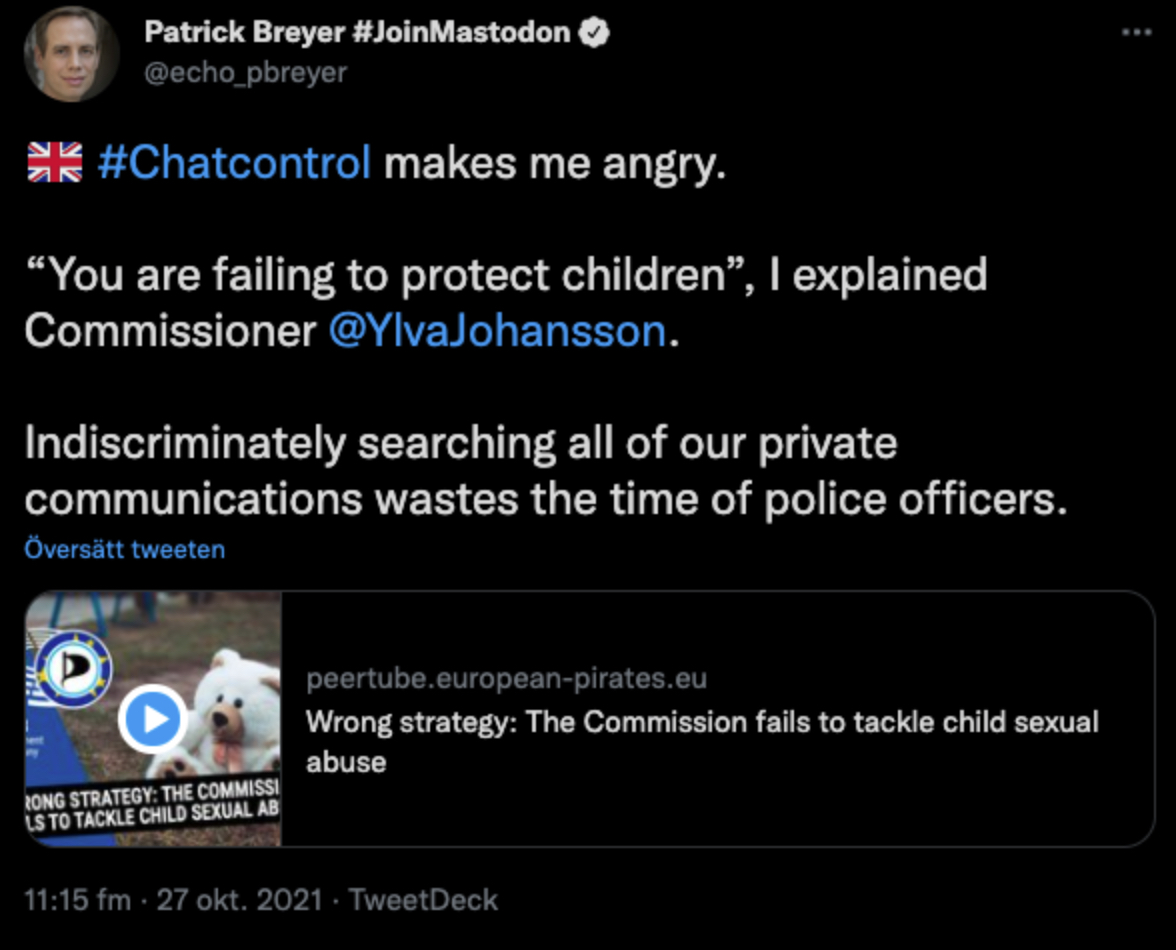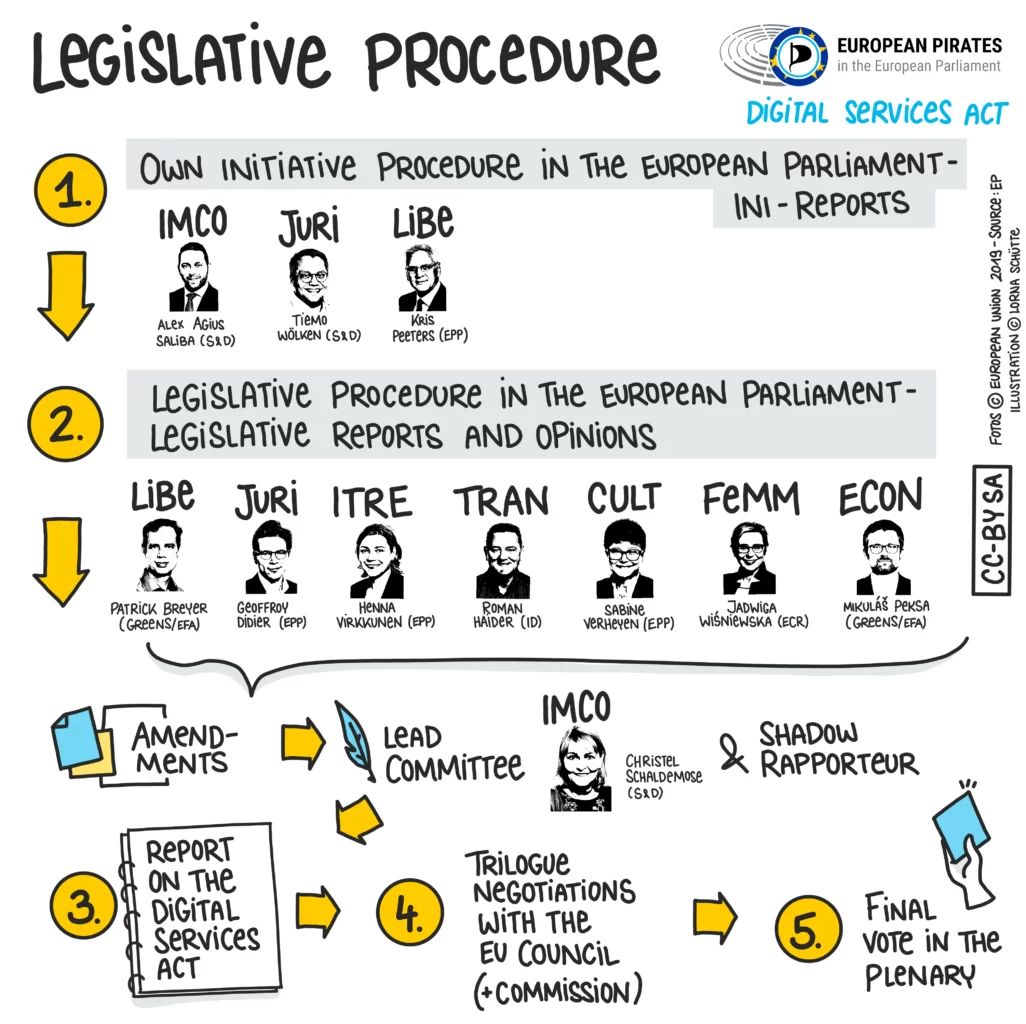Alla dina meddelanden och all din e-post kommer nu att av-krypteras och dess innehåll kommer att granskas.
EU har redan givit sociala media, meddelandetjänster och e-post-leverantörer möjlighet att av-kryptera dina meddelanden och att granska dess innehåll.
Nu skall detta bli obligatoriskt. Det skall gälla alla meddelandetjänster och alla e-postleverantörer.
Alla dina meddelanden och all din e-post, allt du sänder och tar emot kommer att av-krypteras och dess innehåll kommer att granskas.
Allt du sänder till släkt och vänner skall kontrolleras. Allt du sänder i jobbet skall öppnas och granskas. Alla filer, bilder, filmer och ljud du sänder skall analyseras.
Granskningen kommer att göras av maskiner och deras algoritmer. Som inte begriper sig på sammanhang och kontext.
Syftet är att kontrollera att du inte sprider barnporr eller ägnar dig åt sexuella övergrepp mot barn.
Erfarenheter visar att 86 av 100 sådana automatiserade flaggningar är felaktiga och drabbar helt oskyldiga människor.
När meddelandekontrollen väl är på plats då kommer det att vara enkelt att utöka dess syfte. På samma sätt som all övervakning tenderar att utökas såväl vad gäller syfte som omfattning.
Detta är ett verktyg för övervakning och kontroll som lätt kan komma att missbrukas av illvilja, inkompetens eller oförstånd.
Dessutom kommer den första granskningen av innehållet i dina meddelanden och din e-post att göras av Facebook, Google, Apple och andra jättar inom sociala media och kommunikation – som redan vet allt för mycket om dig.
Försvara rätten till privatliv och privat korrespondens. Säg nej till öppning och granskning av allas alla meddelanden och e-post! Säg nej till EU:s meddelandekontroll!
• Läs mer på Chat.control.eu »









